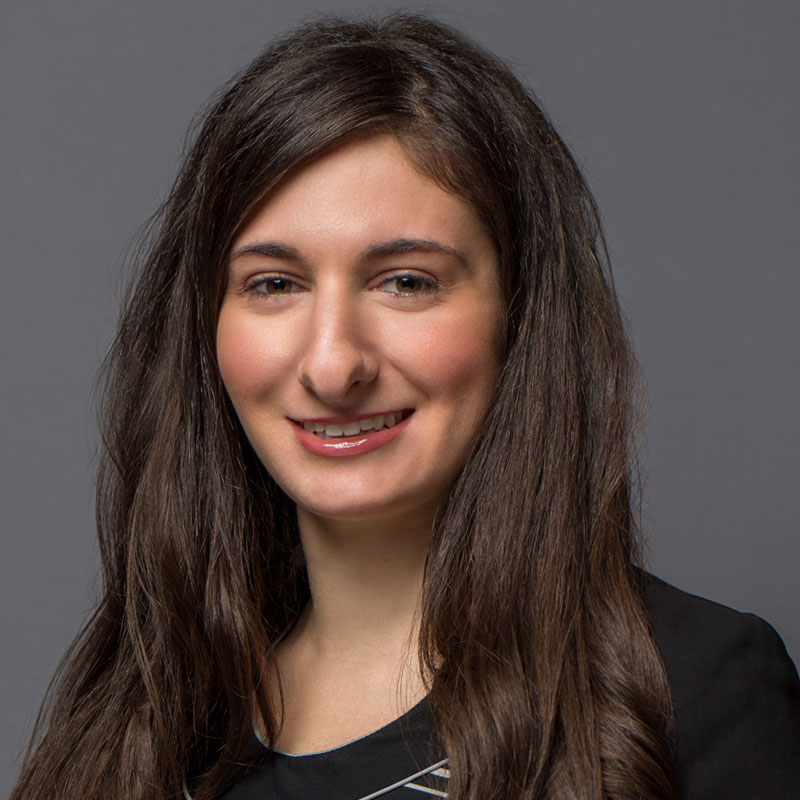We are very pleased to share that our Managing Partner was recently interviewed on the Prosper podcast, from Advisor’s Edge which aired on December 5, 2019. Prosper looked to David Altro as a Florida Attorney & Canadian Legal Advisor for insight on the lifecycle of Canadians owning property in the U.S.; starting with purchasing it, owning it, and then selling it or having an estate handle the sale. David discusses ownerships structures like the Cross Border Trust, owing in your name personally, Corporations and Limited Partnerships and which ones are better suited for personal-use property versus rental property.
To listen to the podcast please use the media player below or follow this link to the Prosper podcast on the Advisor’s Edge website.
Below is a transcript of the podcast which aired on December 5, 2019.
Bruce Sellery: I want a house in the sun. Okay. Okay. A condo, a mobile home, a trailer, a shack, anything as long as it is in the sun. Hundreds of thousands of Canadians already have what I want in Florida, in Arizona, Texas, California, and while most Sunbelt homeowners enjoy the break from our cold, dreary winters, they will also likely admit that there is some complexity to owning another property in the U.S. That’s where a financial advisor can help. Even if you don’t navigate these issues directly, you’d do well to be aware of them so you can make sure your client is also aware. David Altro is the Managing Partner of Altro, LLP. He focuses on cross border tax and estate planning. He joins us now. Hello there.
David Altro: Hi, how are you?
Bruce Sellery: We’re going to go through the life cycle of owning a property in the U.S. You buy one, you own it for a while, and then you sell either on your own or in a scenario where the client’s estate has to handle the sale. Is the simple takeaway here don’t just buy a property on impulse?
David Altro: Well, a lot of clients buy properties on impulse and emotion and that’s kind of the excitement of life. So you’re totally right. It’s better not to, but many people do. So some of them come to us before they buy, which is the best way so we can structure it, and some of them come to us after they buy and then we structure and get them a better structure than owning it personally in their name.
Bruce Sellery: Okay, so all is not lost if you didn’t do it in the best way.
David Altro: All is not lost.
Bruce Sellery: So there are a number of ways to structure a purchase as a person just buying the place, as a corporation, a limited partnership or a cross-border trust. In one sentence what do each of these mean?
David Altro: Well, if you’re buying for personal use, do not put it into your name personally. If you already have it in your name personally, come see us anyway because we would rather you own it in a cross-border trust. That is the best way to own a personal use property for a Canadian, for the U.S. property.
Bruce Sellery: Why?
David Altro: Because it avoids a lot of problems such as probate when you pass away. Probate’s the legal procedure when you pass away owning the property in your name at the court in the county where the property is. It’s very time consuming. It’s very expensive and it freezes the estate. To avoid that we suggest you have it in a cross-border trust where you own the trust. The trust owns the property. God forbid you pass away, there is no probate because the trust owns it. The trust did not die. Inside the trust document we write whatever you want as to who’s going to inherit it, for example, your spouse or your adult children, but no probate, no expense, no freezing of the estate and no delays.
Bruce Sellery: Now, there were two others that I mentioned, the corporation, the limited partnership. What are the negatives on those options versus the cross-border trust?
David Altro: Yeah. If you’re talking about personal use property, we recommend the cross-border trust. We don’t recommend a corporate structure and we don’t recommend a limited partnership structure for that. Why? Because it’s more expensive, because there’s annual filing, because for a corporation there’s tax problems on the Canadian side, even though it’s a U.S. property called a shareholder benefit rule. If you have it in a Canadian corporation or a U.S. corporation and you’re using it personally and you’re the shareholder, the CRA is going to say you’re getting a taxable shareholder benefit equal to the hypothetical rental value and you have to add that to your income. Take tax on phantom income and that’s not a good idea.
David Altro: A limited partnership on the other hand is also not recommended for personal use property. I do see practitioners doing that. It’s not right because a limited partnership or a partnership needs to have a business purpose. But if you’re buying for personal use, there’s no business purpose so what’s happened is it’s not really a valid partnership. It doesn’t really do what it’s supposed to. It’s expensive. There’s annual filings. It’s not the appropriate. These ideas of corporations and limited partnerships are very effective for rental properties. But to answer your question, for personal use property, not those. Rather we like the cross-border trust and we don’t recommend owning it personally. If you already own it personally, we can still transfer it into the cross-border trust after you’ve already bought it even if the property has gone up in value and there is a tax-free rollover, no triggering of a capital gain tax and no land transfer tax.
Bruce Sellery: So you’re the financial advisor, you’ve got a client, they bought a piece of property. You want to send them to to sort out the cross-border trust or at least look at their options. How much does it cost? What’s the ballpark on fees to set that up either in the first instance or to transfer it over?
David Altro: We have a set fee of $5,500 and we charge that in Canadian dollars even though it’s U.S. legal services. I’m a Florida attorney and in addition to being a Canadian legal counsel, but we charge in Canadian dollars. So it gets you a two-in-one, which is a Canadian and a U.S. trust structure inside. Those are our fees.
Bruce Sellery: So that’s buying. Owning’s the next phase. What are some of the tax issues of owning a property in the U.S.? One that seems obvious is if a client rents it out when they’re not there.
David Altro: Correct. If you rent out your U.S. property, you pay income tax to the IRS on the net income, you file a U.S. income tax return called Form 1040nr each year. Now, that’s not the end of the story. You also have to declare that income back home in Canada. Why is that? Because you’re a Canadian resident. The CRA says, “Give us all the information on your gains and losses and income and losses.” So you also declare it in Canada. However, we have a fantastic treaty between Canada and the U.S. and it says if you’re paying income tax to the IRS on your U.S. income from the rental, you’re going to get what’s called a foreign credit in Canada for that tax you paid and then when you pay the Canadian tax, you deduct the U.S. tax and avoid double taxation.
Bruce Sellery: Now you and I are fully above board individuals. I would absolutely make sure I reported any income, but a lot of people are putting their properties on Airbnb and I don’t know how consistent they are in reporting that income. Is there a mechanism for the IRS and/or the CRA to get the data for Airbnb and for you to be caught because you didn’t put the income on your tax return?
David Altro: I really don’t want to talk about how they can find out or can they find out. We’re lawyers and we always tell our clients you need to be declaring everything. The CRA is not a fun institution to deal with, but the IRS is way worse. So certainly, however you’re renting, declare the income, pay the tax and sleep every night.
Bruce Sellery: Yeah. Yeah. Advisors, tell your clients to do things properly. Okay, so selling, so let’s say you sell it just because you don’t use it anymore for whatever reason. It isn’t the Canadian’s principle residence. They go down there for X number of months a year. How does capital gains tax work?
David Altro: Capital gains tax works as follows. It’s typically, let’s say you have it in the cross border trust, the capital gain tax by the IRS will be maxed out at 20% of the net, net, net gain. Okay? So the way it works is, and we represent people everyday selling, Canadians. So what happens is at the closing, first of all there’s a withholding by the IRS under the Foreign Investment In Real Property Tax Act, FIRPTA. And FIRPTA says there’s going to be a 15% withholding. Okay, that’s not a tax. It’s a withholding against the tax, okay? That can be avoided if it’s under $300,000 and the buyer is going to be using it personally or even if it’s over that, rather than sending it to the IRS, we often just hold it at our title company and then a petition to have it released.
David Altro: Now, if you buy for 100,000, you sell for 200 and you have a $100,000 gain, that’s 20% tax, $20,000. That’s not the end of it. Just like the rental income story. You also have to declare that the capital gain back home here in Canada. Again you’re going to get a credit in Canada for the tax you paid in the States. Here in Canada, let’s say Ontario, you would have a tax at a maximum of about 26.75%. So a little over 25% and you would get a credit for the U.S. and you’d net out of paying Canada about 6.75% and the U.S. 20%.
Bruce Sellery: So say your client happens to be the executor of an estate in which they, maybe it’s a family member, they did not set up the cross-border trust. Give us a flavour for what happens when that estate goes into probate and what actions need to happen in order to sort this issue out. You’ve said it’s expensive. It’s probably time consuming.
David Altro: Right. Typically what happens is the adult children call me up and say, “Well, Mom’s passed away. We want to sell the property. We don’t want to use it ourselves. Can we put it up for sale?” Then I explain to them we have to file a probate proceedings first. You can’t sell the property until the executor under the will is appointed, what’s called personal representative, under the Florida Probate Code. This is what I was referring to before. It takes a lot of time and it’s expensive and it freezes the estate. So that’s a big process could take eight to 12 months.
David Altro: Meanwhile it’s not being sold, so that’s the delay there. Once you get appointed as a personal representative under the probate, the property can be sold and when it’s sold, the executor is the person who signs. The money goes into the trust or into the estate. If there was a capital gain, there’s going to be a tax in Canada and in the States there’s no capital gains tax on death. Then there’s a filing with both the U.S. and the Canadian side.
Bruce Sellery: Just before we go here, one final catchall question. What advice would you have for financial advisors trying to assist their clients on this process?
David Altro: Well, we love financial advisors, financial planners, and my advice is, first of all, always ask your clients number one, do you have any property in the U.S.? Number two, are you contemplating purchasing any property in the U.S.? Number three, are you a U.S. citizen? Number four, do you have any adult children who are U.S. residents? Okay? All of those things should be asked at the get go and every quarter or whatever to make sure that the financial advisor can be given the appropriate advice. For sure, yes to any of those questions are red flags and at that point the advisor ought to bring in a cross-border tax and estate planning specialist to help work on the file to make the right plan to do the best job for the client.
Bruce Sellery: David, thanks for your insight today.
David Altro: Thank you for having me on.
Bruce Sellery: David Altro, Managing Partner of Altro, LLP. We were talking about some of the many cross-border tax and estate planning issues if you’re looking at buying a place in the sun.
To continue reading, please click here to view the full transcript on the Proper, from Advisor’s Edge website.







